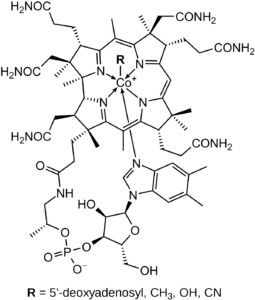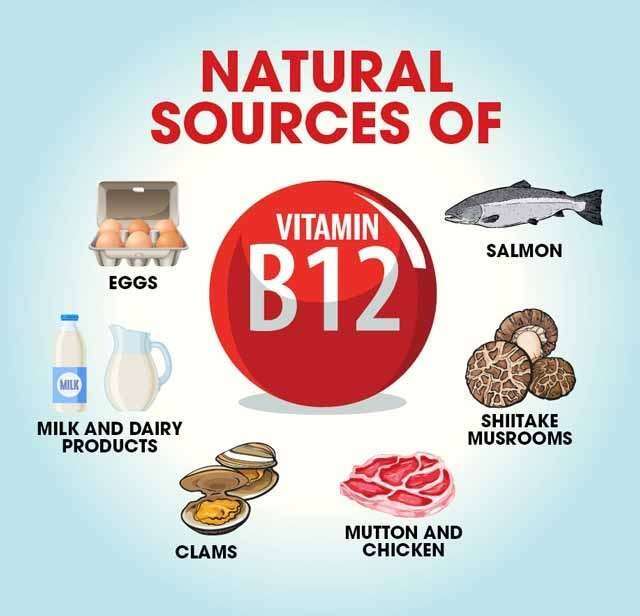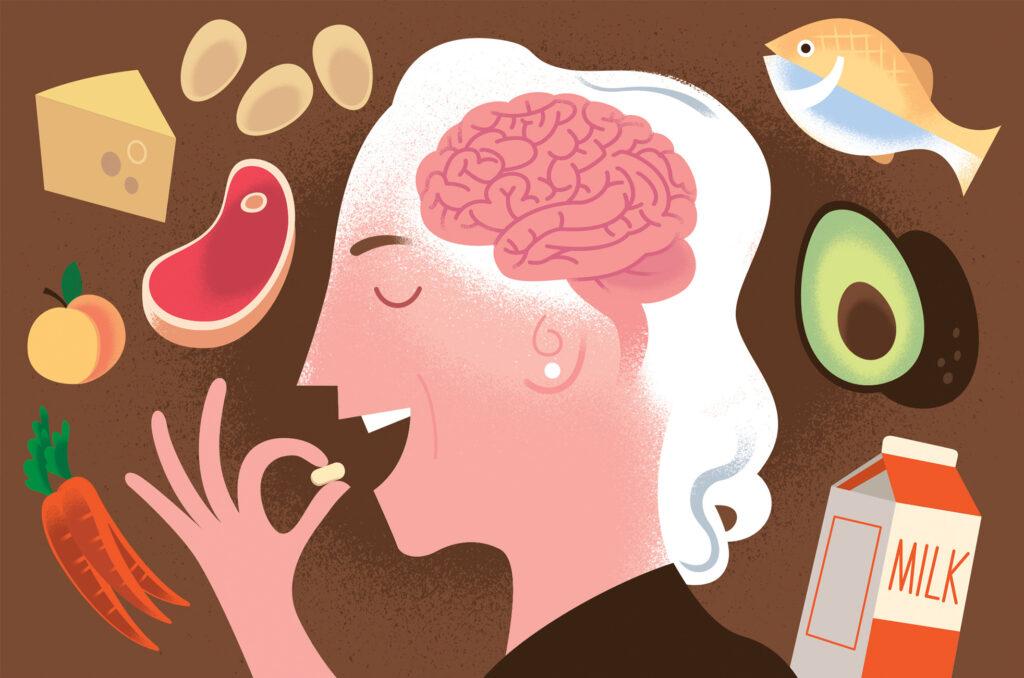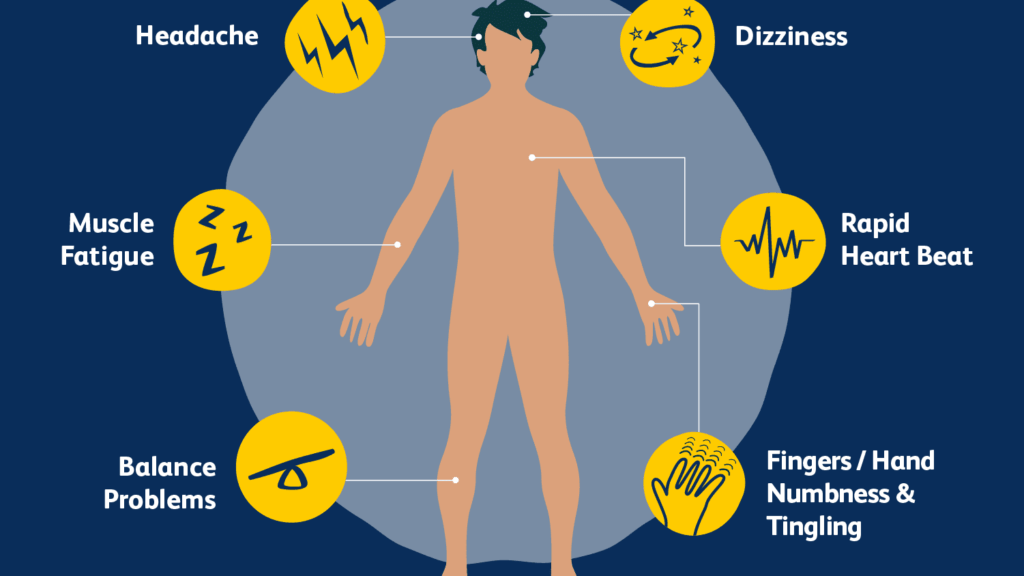The Importance and Best Sources of Vitamin B12
What is Vitamin B12 (Cobalamin)?
Vitamin B12 is also known as (Cobalamin) which plays an important role in the RBC formation, cell metabolism, nerve function, and the production of DNA. Vitamin B12 is one of the eight B vitamins. Vitamin B12 is easily soluble in water
Vitamin B12 is an essential nutrient that your body cannot produce on its own, so you must obtain it through food or supplementation.
The brain, neurons, blood cells, and many other components of the body require vitamin B12 for healthy function and growth.
Vegetarians, pregnant or breastfeeding women, and those at risk of deficiency should keep a tight eye on their diets to ensure they obtain enough.

How many intakes of Vitamin B12 in your body are necessary?
It depends on things like your age, your eating habits, health, and your medications. Here is some average amount that is suggested:-
0.4 mcg for infants up to 6 months
0.5 mcg for babies aged 7 to 12 months
0.9 mcg for children aged 1-3 years
1.2 mcg for children aged 4 to 8 years
1.8 mcg for children aged 9 to 13.
2.4 mcg for 14-18-year-olds (2.6 mcg per day if pregnant and 2.8 mcg per day if breastfeeding)
Rich Sources of Vitamin B12

Mostly vitamin B12 is found in animal foods which occur naturally in them. Animal sources like dairy products such as eggs, milk, fish, meat, yogurt, and poultry. A larger amount of vitamin B12 is mostly found in beef, liver, and chicken. Foods that contain more vitamin B12 are Fish, Shellfish, Fortified breakfast cereals, and fortified nutritional yeast.
Supplements of Vitamin B12:-
Many people have difficulty absorbing vitamin B-12 from food and may require treatment.
Vitamin B12 can be found in multivitamin/multimineral supplements, B-complex supplements, and vitamin B12-only supplements. It’s commonly found in the form of cyanocobalamin. Adenosylcobalamin, methylcobalamin, and hydroxocobalamin are three other frequent types.
Vitamin B12 can also be taken as a liquid that is dissolved under the tongue (called sublingual vitamin B12). There is no evidence that one type of supplemental vitamin B12 is superior to another.
Supplements with varying amounts of vitamin B12 are available. Some companies sell vitamin B12 levels that are far greater than suggested, such as 500 mcg or 1,000 mcg, but your body only absorbs a small portion of it.
Patients with pernicious anemia, elderly persons, and those with achlorhydria or intestinal abnormalities may have difficulty absorbing vitamin B-12 from meals.
Supplements are available in two forms: orally and as a nasal spray. Oral supplements, on the other hand, are ineffective in many cases of insufficiency. Vitamin B-12 injections may be used in certain cases.
Benefits of vitamin B12?

Vitamin B12 is a nutrient that aids in the creation of healthy red blood cells, helps the body build DNA, and nourishes the brain and neurological system. The nutrient can be synthesized in a lab and is found naturally in meat, fish, and dairy products.
1. It helps in boosting your energy.
2. It helps to prevent heart disease.
3. More intake of vitamin B12 improves your memory.
4. It helps the Formation of Red blood cells.
5. Vitamin B 12 helps in the prevention of anemia
6. It prevents major birth defects
7. It supports bone health
8. It prevents the disease of osteoporosis
9. It also reduces the chance of having an eye disease
10. It is beneficial for your brain also
11. Vitamin B12 makes our hair, nails, and skin healthy.
Who is at risk?
Those who intake metformin for blood sugar control, older age people, People who are on a vegan diet.
In vegans, a deficiency might be exacerbated by pregnancy and lactation. Cobalamin levels in plant-based meals are insufficient to ensure long-term health.
People suffering from gastrointestinal and who has Crohn’s disease are said to be
at risk.
Individuals with small intestine issues, such as those whose small intestine has been surgically shortened. They may not be able to adequately absorb cobalamin.
Inflammatory bowel disease, gastritis, and celiac disease can all cause a deficit. Because of these conditions, nutritional absorption is limited.
People facing diabetes and chronic alcoholism as their bodies are unable to absorb vitamin B12.
Vitamin B-12 deficiency is common in people with pernicious anemia. Pernicious anemia is a blood disorder caused by an autoimmune illness. Intrinsic factor (IF), a protein in the stomach that permits the body to absorb vitamin B-12, is deficient in patients with this condition.
Symptoms of Vitamin B12 Deficiency:-

You may experience these symptoms in vitamin B12 deficiency, such as:
1. Depression:- In older males, eating more vitamin B12-rich foods has been associated with a lower incidence of depression. Lower vitamin B12 levels in pregnant women’s blood have been related to a higher incidence of depression. However, it’s uncertain whether eating more vitamin B12 or taking supplements can help pregnant women avoid depression.
2. Fatigue:- Fatigue is a form of tiredness. Physical and mental fatigues occur just because of a deficiency of vitamin B12. Fatigue can also result from stress, irregularity in eating, and sleeping more.
3. Damage in the Nervous system:- Many people who lack vitamin B12 have more chances of having psychosis, mania, and dementia.
4. Constipation:- Deficiency of B12 includes Constipation, loss of appetite, and loss of weight. Constipation is a serious problem when one person has to suffer emptying the larger bowel.
5. Anemia:- People suffering from anemia face fatigue, shortness of breath, irregular heartbeat, weight loss, diarrhea, yellowing of the skin, menstrual problems, and a sore mouth.
Recent Posts
- All Posts
- Blog

Read More
Our Speciality
- Cardiology & Cardiac Surgery
- Neurosurgery
- Orthopedics & Joint Replacement
- Urology
- Gastroenterology
- Nephrology & Dialysis
- Bariatric & Metabolic Surgery
- ENT & Head Face Neck Surgery
- Internal Medicine & Critical Care
Explore More
Our Doctors

Dr Prakash Chandwani
(Chief Managing Director) Director & Head Dept of Cardiology

Dr Mahesh Goyal
Director & Head Dept of Allergy Specialist, Asthma & Sleep

Dr Mohammed Sharif
CEO & Global Operations

Dr Ghanshyam Agrawal
Consultant Dept of Neuro Surgeon

Dr Sumit Kamble
Consultant Dept of Neurology
See All Doctors

